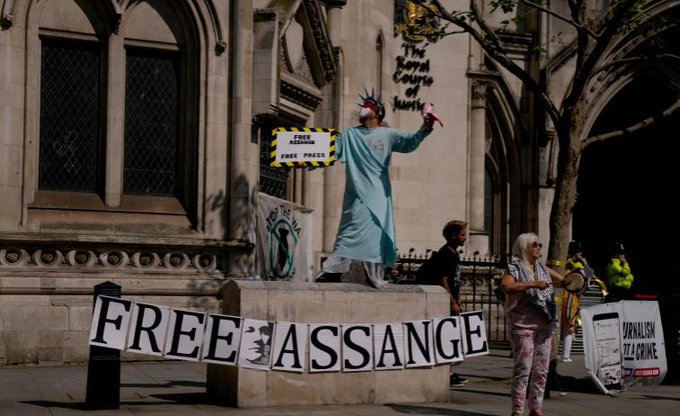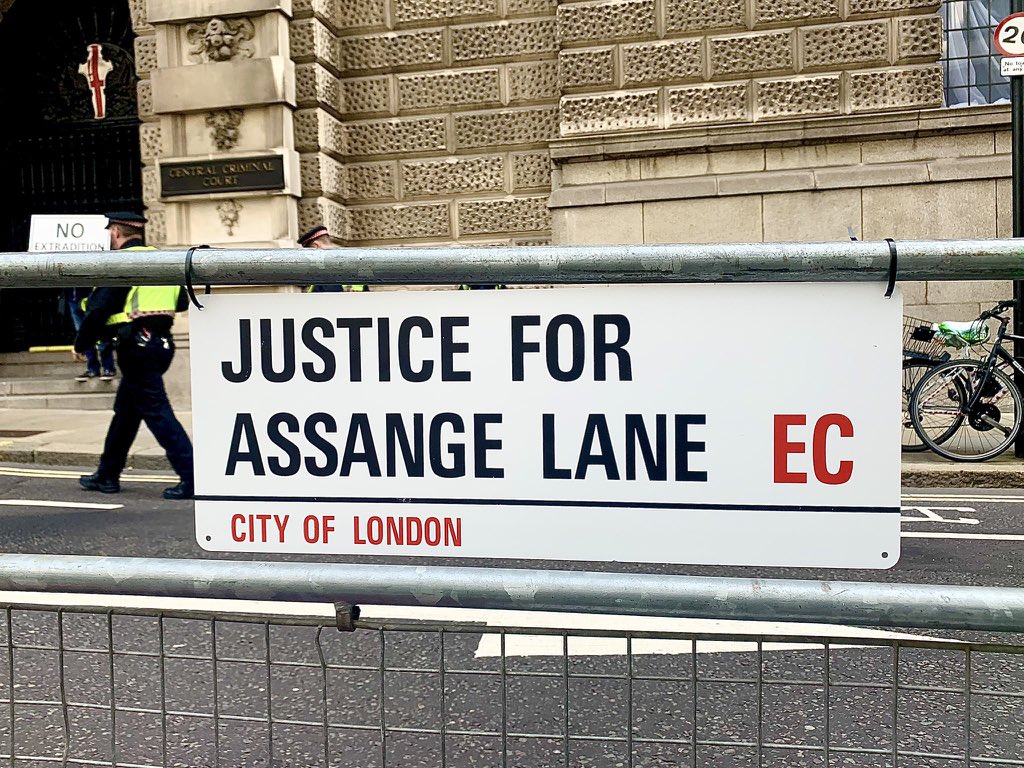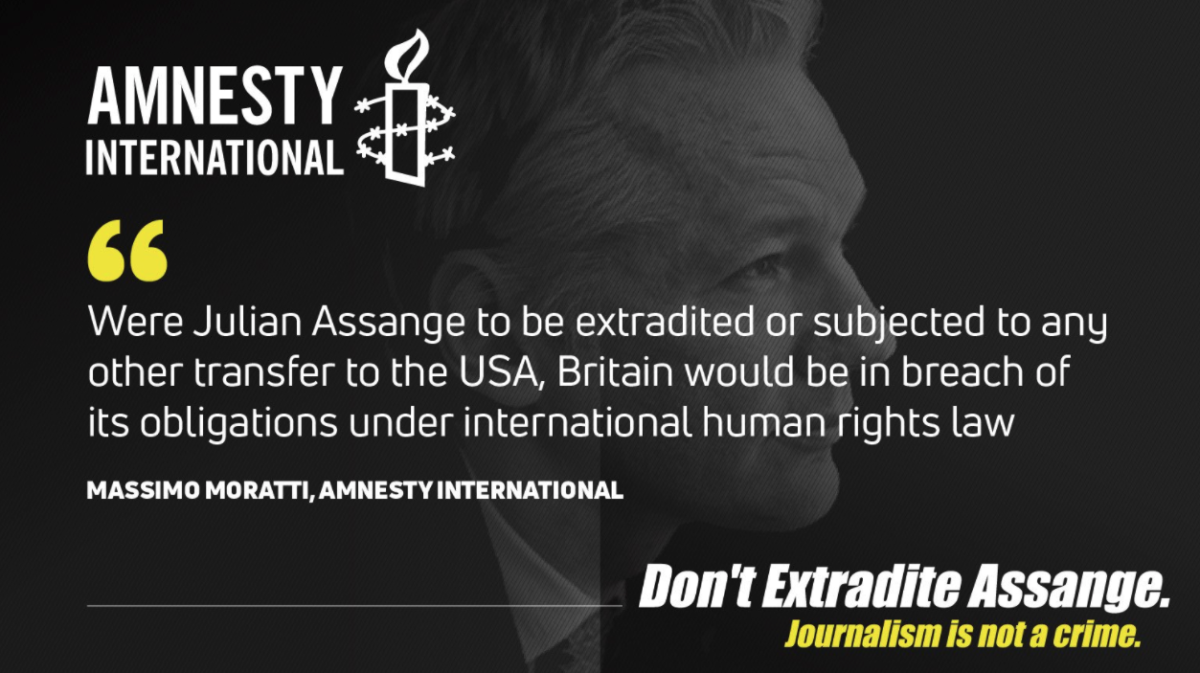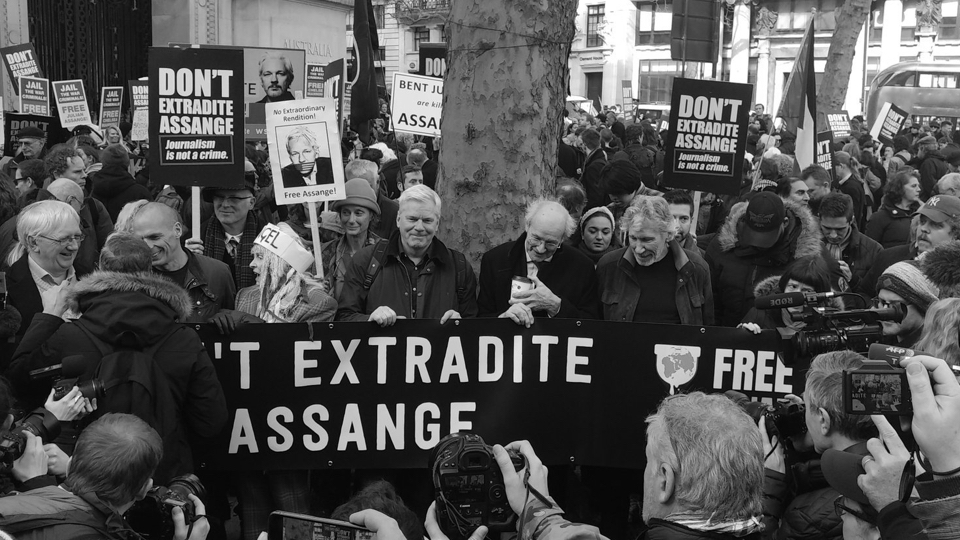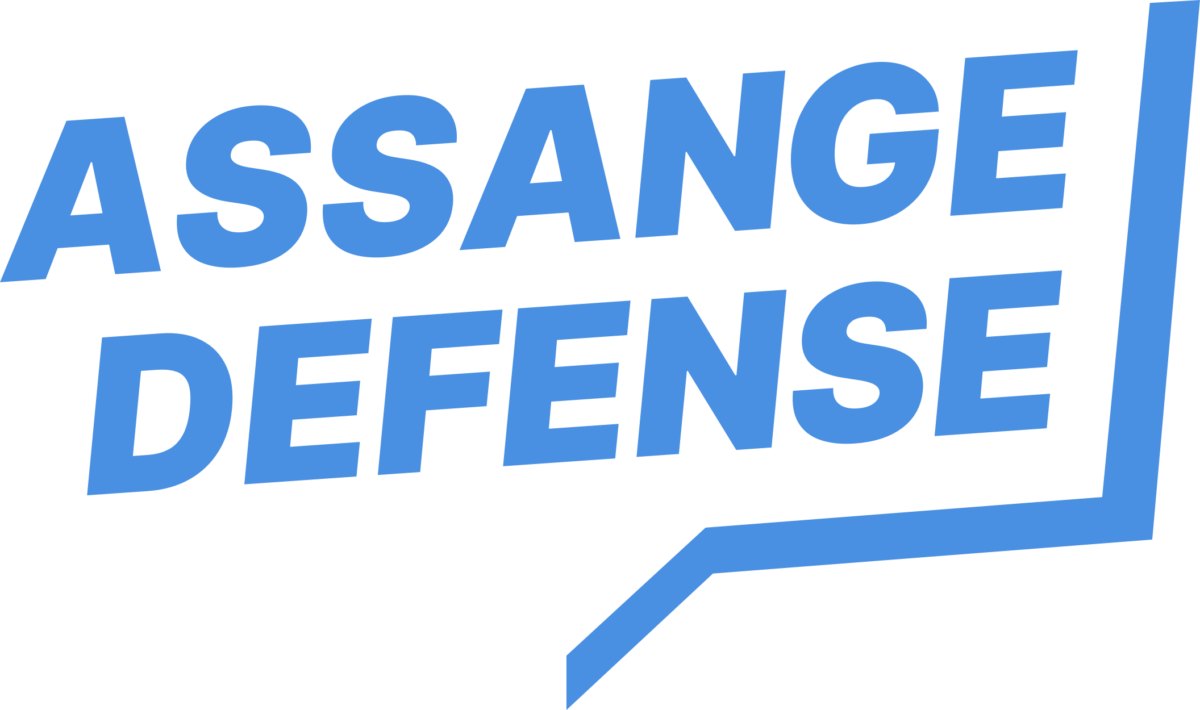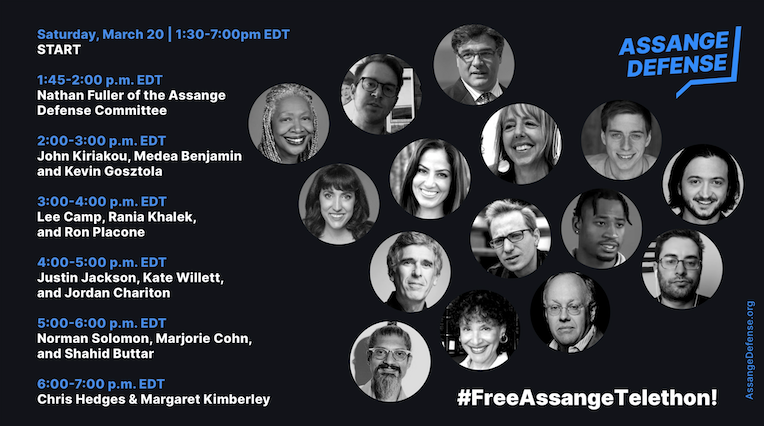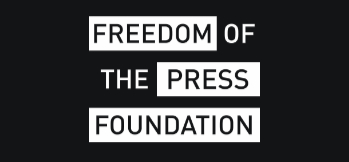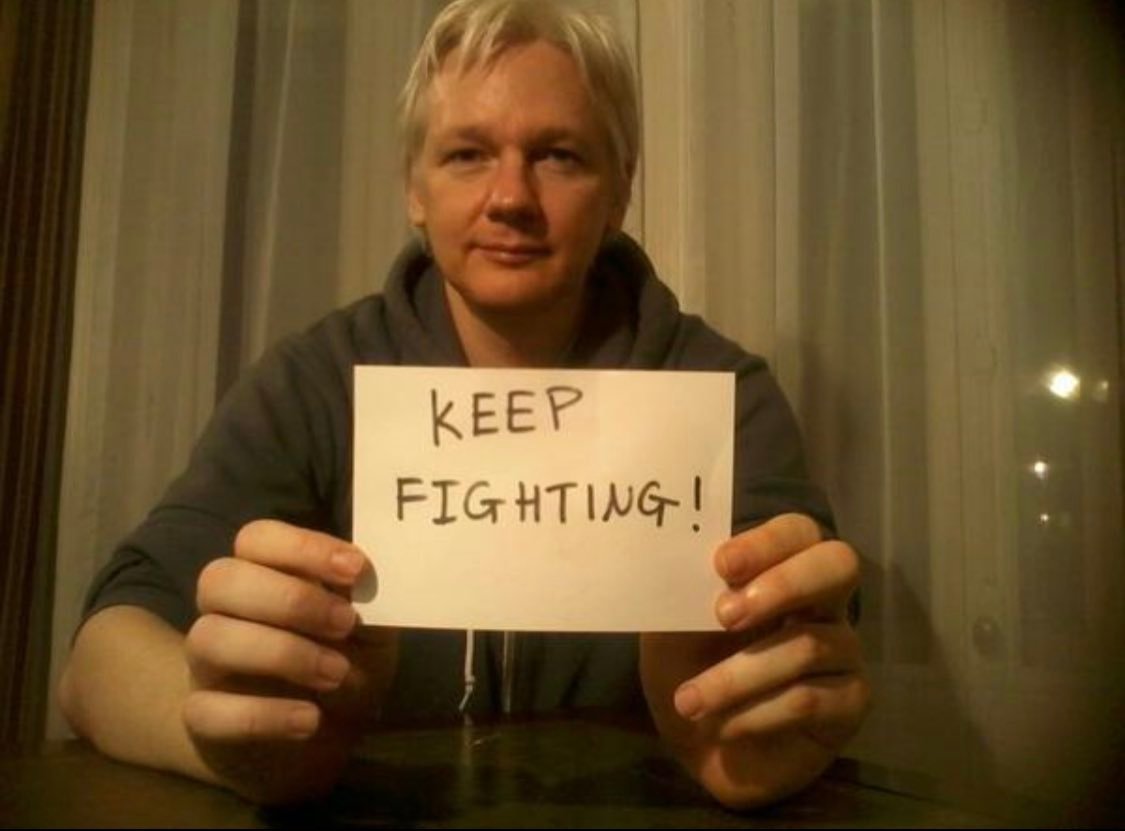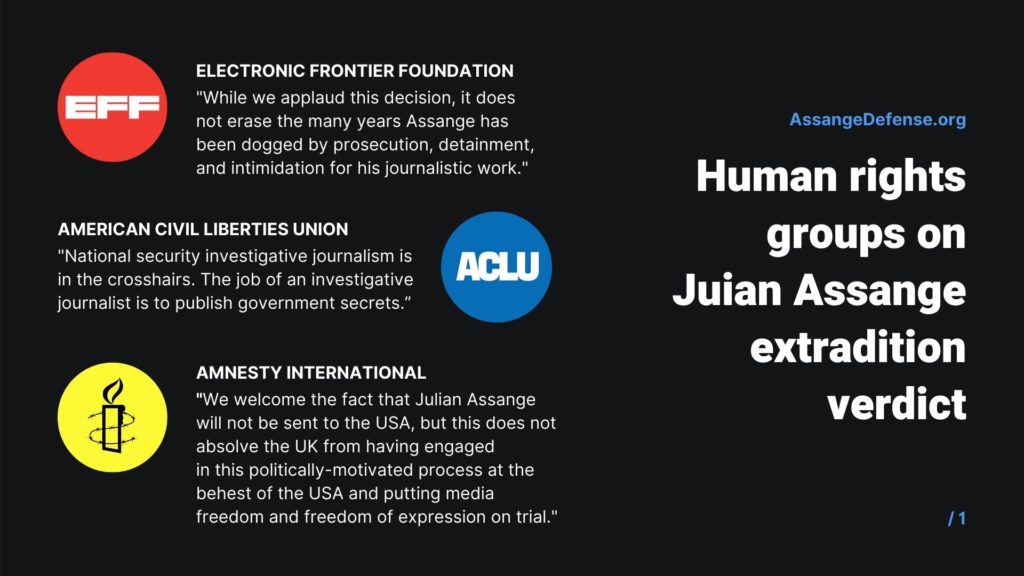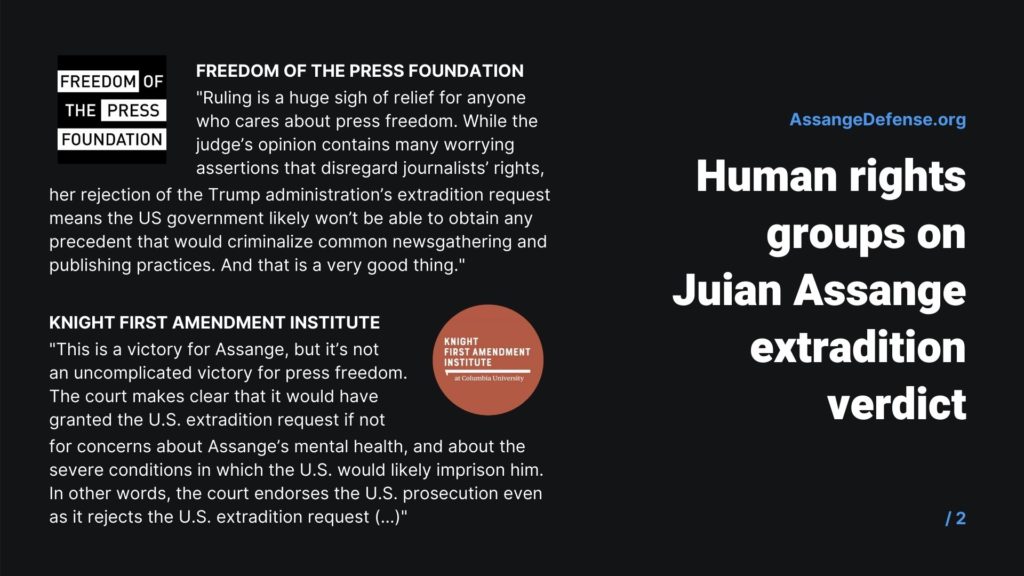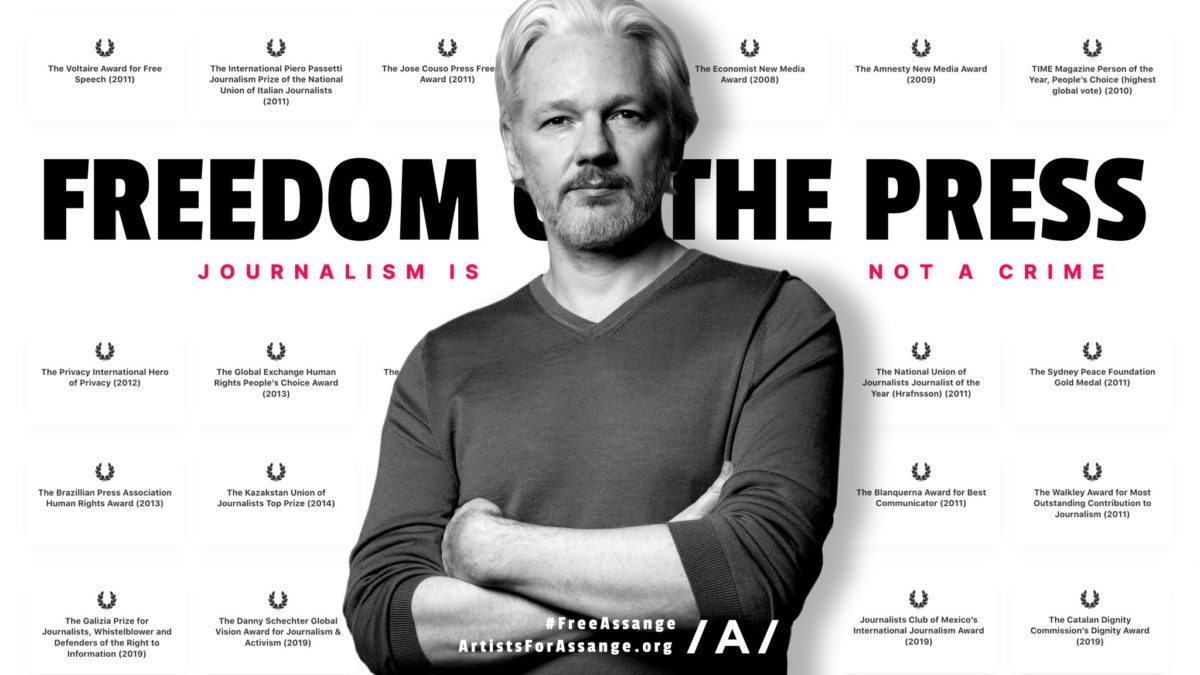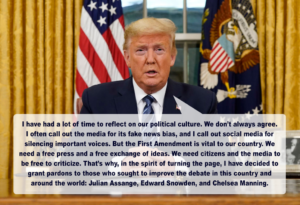Yahoo! News has uncovered the incredible and disturbing range of actions the CIA was considering against WikiLeaksвҖҷ publisher Julian Assange while he was in the Ecuadorian Embassy in London. Zach Dorfman, Sean D. Naylor and Michael Isikoff spoke to more than 30 former U.S. officials to confirm that the agency seriously considered and debated abducting Assange from the embassy and even mentioned the possibility of assassinating him.
вҖңSome senior officials inside the CIA and the Trump administration even discussed killing Assange, going so far as to request вҖңsketchesвҖқ or вҖңoptionsвҖқ for how to assassinate him. Discussions over kidnapping or killing Assange occurred вҖңat the highest levelsвҖқ of the Trump administration, said a former senior counterintelligence official. вҖңThere seemed to be no boundaries.вҖқ
The conversations were part of an unprecedented CIA campaign directed against WikiLeaks and its founder. The agencyвҖҷs multipronged plans also included extensive spying on WikiLeaks associates, sowing discord among the groupвҖҷs members, and stealing their electronic devices.вҖқ
U.S. officials allege that in 2017 they believed that Russia was working to sneak Assange out of the embassyвҖ”which, as AssangeвҖҷs partner Stella Moris reminds, was a fabricated pretext вҖ”and they were willing to go to extreme lengths to thwart such a plot:
вҖңIn response, the CIA and the White House began preparing for a number of scenarios to foil AssangeвҖҷs Russian departure plans, according to three former officials. Those included potential gun battles with Kremlin operatives on the streets of London, crashing a car into a Russian diplomatic vehicle transporting Assange and then grabbing him, and shooting out the tires of a Russian plane carrying Assange before it could take off for Moscow. (U.S. officials asked their British counterparts to do the shooting if gunfire was required, and the British agreed, according to a former senior administration official.)вҖқ
The Obama administration, as has been widely reported and discussed at length during AssangeвҖҷs extradition hearing, declined to prosecute Assange on publication charges on Constitutional grounds, finding no way to do so without running afoul of the First Amendment. So the intelligence community worked to redefine WikiLeaks to circumvent the problem and to expand their range of targets:
“Still chafing at the limits in place, top intelligence officials lobbied the White House to redefine WikiLeaks вҖ” and some high-profile journalists вҖ” as вҖңinformation brokers,вҖқ which would have opened up the use of more investigative tools against them, potentially paving the way for their prosecution, according to former officials. It вҖңwas a step in the direction of showing a court, if we got that far, that we were dealing with agents of a foreign power,вҖқ a former senior counterintelligence official said.
Among the journalists some U.S. officials wanted to designate as вҖңinformation brokersвҖқ were Glenn Greenwald, then a columnist for the Guardian, and Laura Poitras, a documentary filmmaker, who had both been instrumental in publishing documents provided by Snowden.”
Video: The war on WikiLeaks and Julian Assange: Yahoo News Explains
While the abduction and assassination plans were ultimately rebuffed by White House lawyers, they sped up the Department of JusticeвҖҷs legal case against Assange, merely by virtue of being so outrageous:
вҖңSome National Security Council officials worried that the CIAвҖҷs proposals to kidnap Assange would not only be illegal but also might jeopardize the prosecution of the WikiLeaks founder. Concerned the CIAвҖҷs plans would derail a potential criminal case, the Justice Department expedited the drafting of charges against Assange to ensure that they were in place if he were brought to the United States.вҖқ
Assange remains imprisoned in maximum security Belmarsh prison for two and a half years, despite winning his extradition battle in the UKвҖҷs District Court. The ruling, which declared that sending Assange from the UK to the U.S. would put him at risk of suicide, was immediately appealed by the U.S. to the High Court, which will hear appeal arguments in London on October 27-28.
Yahoo News: 5 big takeaways from an investigation into the CIA’s war on WikiLeaks
Followup
Yahoo News: “‘I make no apologies’: Pompeo says Trump administration was protecting sensitive information”
In his first public comments since a Yahoo News investigation revealed discussions within the Trump administration in 2017 about kidnapping or even killing WikiLeaks founder Julian Assange, former Secretary of State Mike Pompeo said he makes вҖңno apologiesвҖқ for the Trump administrationвҖҷs actions to protect вҖңreal national security secrets.вҖқ
…
Pompeo declined to deny the individual allegations in the story, saying only that Yahoo NewsвҖҷ вҖңsources didnвҖҷt know what we were doing.вҖқ
…
Pompeo disparaged one of the co-authors of the Yahoo News investigation during his interview with Beck and in response to a question about the Yahoo News story at an appearance at Hillsdale College on Monday.
Reactions
Barry Pollack, AssangeвҖҷs U.S. lawyer:
вҖңAs an American citizen, I find it absolutely outrageous that our government would be contemplating kidnapping or assassinating somebody without any judicial process simply because he had published truthful information,вҖқ Barry Pollack, AssangeвҖҷs U.S. lawyer, told Yahoo News.
вҖҰ
вҖңMy hope and expectation is that the U.K. courts will consider this information and it will further bolster its decision not to extradite to the U.S.,вҖқ Pollack added.
вҖҰ
вҖңthe extreme nature of the type of government misconduct that youвҖҷre reporting would certainly be an issue and potentially grounds for dismissal.вҖқ He likened the measures used to target Assange to those deployed by the Nixon administration against Daniel Ellsberg for leaking the Pentagon Papers, noting the charges against Ellsberg were ultimately dismissed as well.
Laura Poitras:
вҖңIn a statement to Yahoo News, Poitras said reported attempts to classify herself, Greenwald and Assange as вҖңinformation brokersвҖқ rather than journalists are вҖңbone-chilling and a threat to journalists worldwide.вҖқ
вҖңThat the CIA also conspired to seek the rendition and extrajudicial assassination of Julian Assange is a state-sponsored crime against the press,вҖқ she added.
Glenn Greenwald:
вҖңI am not the least bit surprised that the CIA, a longtime authoritarian and antidemocratic institution, plotted to find a way to criminalize journalism and spy on and commit other acts of aggression against journalists,вҖқ Greenwald told Yahoo News.
Freedom of the Press Foundation: вҖңAfter shocking story about CIA illegal acts, Biden admin must drop Assange charges immediatelyвҖқ
вҖңThe CIA is a disgrace. The fact that it contemplated and engaged in so many illegal acts against WikiLeaks, its associates, and even other award-winning journalists is an outright scandal that should be investigated by Congress and the Justice Department. The Biden Administration must drop its charges against Assange immediately. The case already threatens the rights of countless reporters. These new revelations, which involve a shocking disregard of the law, are truly beyond the pale.вҖқ — Trevor Timm, Executive Director
Defending Rights & Dissent: DRAD Condemns Outrageous CIA Attacks on Assange and Press Freedom
вҖңRegardless of the targets, such actions are illegal and immoral. That the CIA seriously considered resurrecting some of its most criminal tactics of the Global War on Terror and Cold War is cause for serious alarm. That the target was an award winning journalist, however, makes these revelations all the more chilling.вҖқ — Chip Gibbons, Defending Rights & DissentвҖҷs Policy Director.
International Federation of Journalists: CIA reportedly plotted to kidnap and assassinate Julian Assange
вҖңIf these accusations are true, it would cast a long shadow over all independent journalism and they would once again prove that extraditing Assange to the United States would put his life at serious risk. We are calling for a full investigation and for the British authorities to release him immediately.вҖқ — Anthony Bellanger, IFJ General Secretary
National Union of Journalists: CIA reportedly plotted to kidnap and assassinate Julian Assange
вҖңThe suggestion that US security services even considered kidnapping and murder on the streets of a trusted ally is chilling. That such acts might have been contemplated as a reaction to an individual who had simply published inconvenient truths is all the more troubling.
вҖңAt Assange’s extradition hearings, the US government did not contest evidence that individuals allegedly working on its behalf had bugged the Ecuadorian embassy in London, followed AssangeвҖҷs family and associates, and burgled the office of his lawyer. That context makes these fresh allegations all the more difficult to dismiss.
вҖңIf true, the story from Yahoo! NewsвҖҷ blows a hole in the case made by the US government that its attempt to extradite Assange is not politically motivated.
вҖңI am calling on the UK home secretary to explain whether the security services had any involvement in, or knowledge of, these plans.
вҖңFurthermore, it is clear that when the US appeal against the dismissal of its extradition application in respect of Assange is heard in October, it should be dismissed out of hand and its subject released at once.вҖқ
Reporters without Borders: “Alarming reported CIA plot against Julian Assange exposed”
вҖңIf true, these allegations of a CIA threat to AssangeвҖҷs life are alarming, and underscore the very serious risk he remains at in detention, which would be exponentially heightened if the US is successful in securing his extradition. The exposed alleged plots that could cause severe harm or loss of life to Assange or his associates are threats to press freedom itself. The Biden administration must act immediately to distance itself from these shocking reports of the Trump administrationвҖҷs actions, close the case against Assange once and for all, and allow for his release from prison before any further harm is caused.” — Rebecca Vincent, RSFвҖҷs Director of International Campaigns.
American Civil Liberties Union
Parliamentary Assembly Council on Europe: “PACE General Rapporteur expresses serious concern at reports that US officials discussed assassinating Julian Assange”
вҖңIf these reports are true, I am horrified,вҖқ said Mr Omtzigt. вҖңTo kidnap or kill a civilian who published leaked documents would be a gross violation of basic Council of Europe human rights principles вҖ“ and, one would hope, unthinkable in the worldвҖҷs most powerful democracy. Reports that high-level US officials may have considered such an option are deeply worrying.вҖқ
Mr Omtzigt pointed to a 2020 resolution of the Assembly which called for Mr AssangeвҖҷs extradition to the US to be barred, and urged his prompt release. вҖңThe Assembly has already made clear that the detention and criminal prosecution of Mr Assange sets a dangerous precedent for journalists. These reports only reinforce our concern that Mr Assange could be treated most unfairly.вҖқ
He added: вҖңI am confident that the British courts will take these reports into consideration when ruling on Mr AssangeвҖҷs extradition, and I call on the US authorities to clarify whether such appalling вҖҳoptionsвҖҷ really were considered, and if so how to prevent this from happening again.вҖқ
Coverage
Yahoo reporter Michael Isikoff spoke to MSNBCвҖҷs Ayman Mohyeldin
Isikoff was also interviewed by radio host Randy Credico:
UN Special Rapporteur on Torture, Nils Melzer, responded to the story:
The HillвҖҷs Rising covered the new report as well:
The Intercept: “Assange kidnapping plot casts new light on 2018 Senate Intelligence maneuver”
a provision in the Intelligence Authorization Act for Fiscal Year 2018 stated: вҖңIt is the sense of Congress that WikiLeaks and the senior leadership of WikiLeaks resemble a non-state hostile intelligence service often abetted by state actors and should be treated as such a service by the United States.вҖқ
This kind of text doesnвҖҷt necessarily have a formal impact on policy, but the language was so alarming to Sen. Ron Wyden, D-Ore., a senior member of the Senate Select Committee on Intelligence, that he opposed the bill in a 14-1 panel vote in July 2017. вҖңMy concern is that the use of the novel phrase вҖҳnon-state hostile intelligence serviceвҖҷ may have legal, constitutional, and policy implications, particularly should it be applied to journalists inquiring about secrets,вҖқ he explained in a press release at the time.
…
the final compromise bill, which included the new identification for WikiLeaks, was wrapped into the National Defense Authorization Act for Fiscal Year 2020 that Congress passed and President Donald Trump signed in December 2019. By that time, according to Yahoo News, members of the intelligence panels had already learned about the CIAвҖҷs proposals targeting the group. Yet no lawmaker publicly raised concerns about endorsing the вҖңnon-state hostile intelligence serviceвҖқ label.


